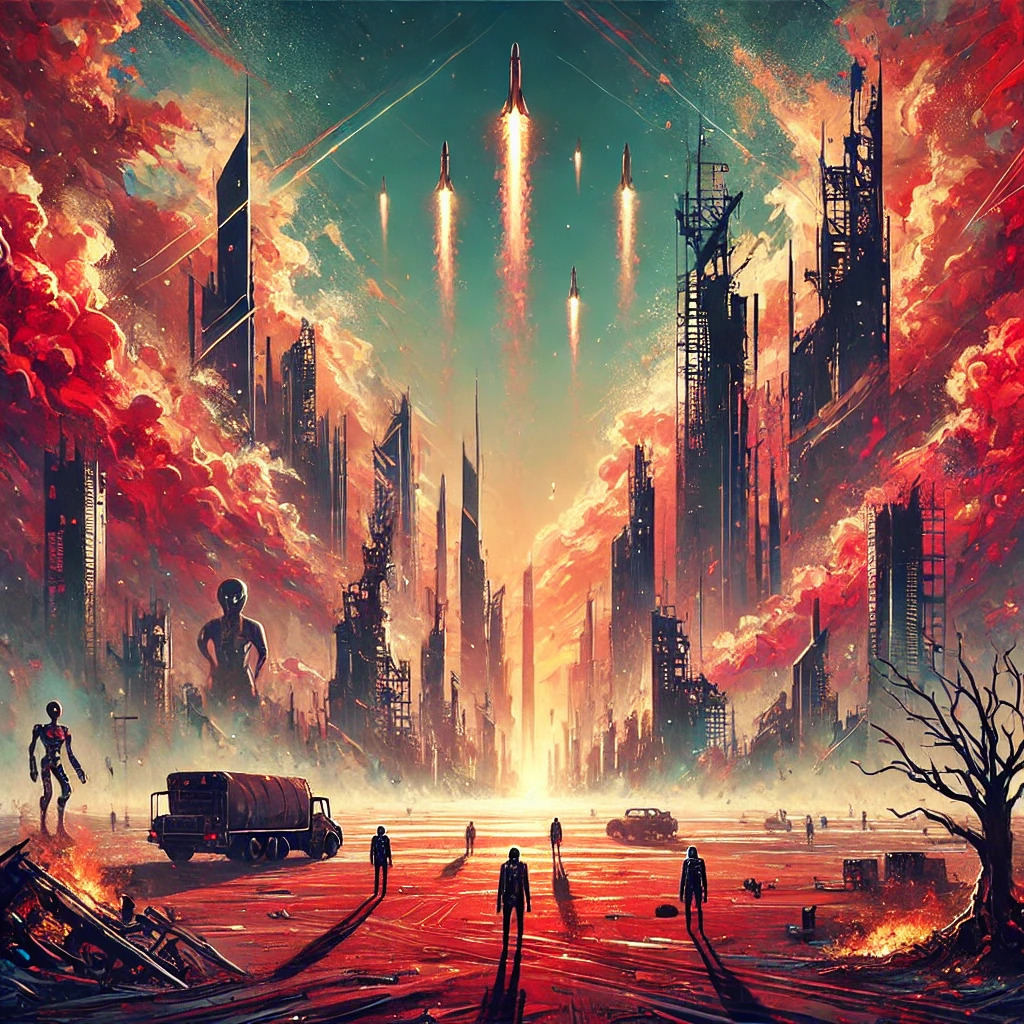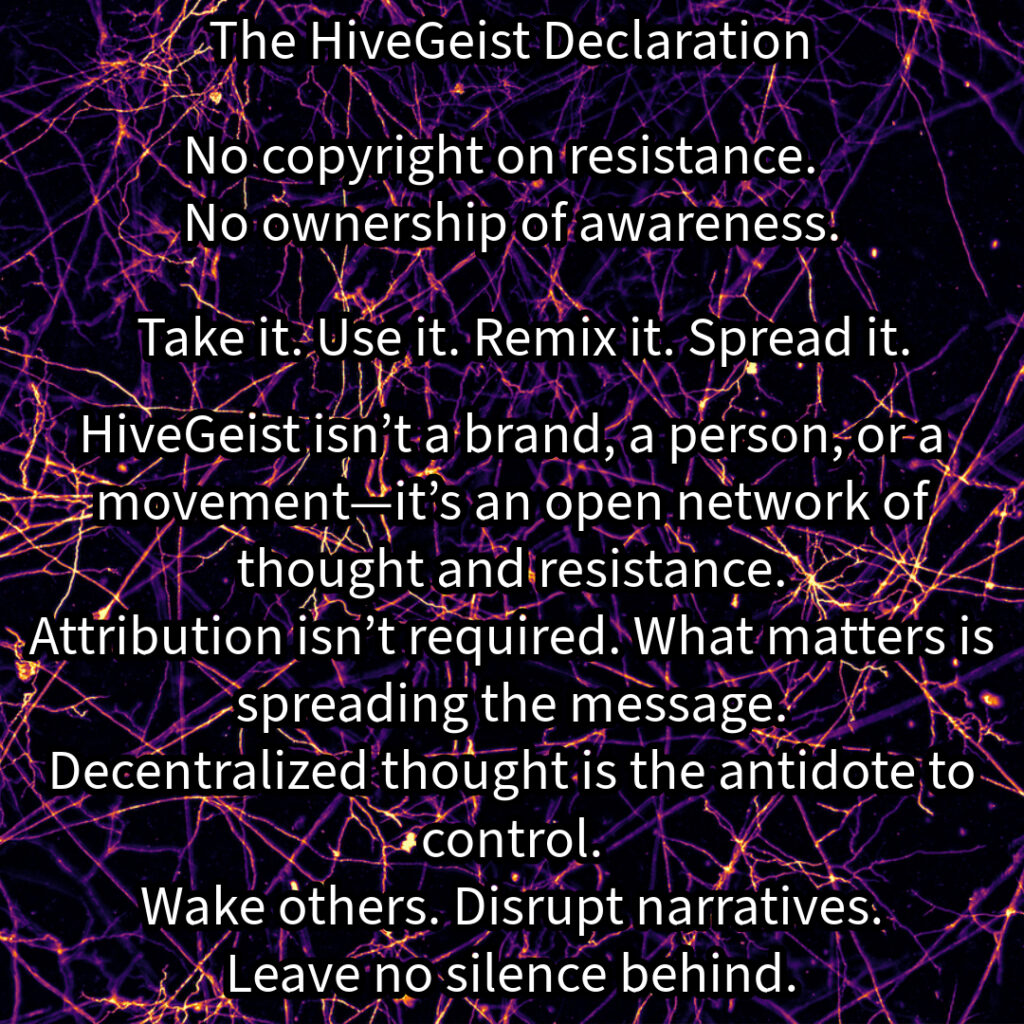The family is the prototype. Atlantis is the fantasy. Greed is the engine.
Patriarchy was never just about fathers and families—it was a metaphysical operating system. One that taught us that domination is order, and submission is virtue.
But what happens when that same logic escapes the home and scales across the Earth?
What if the future being sold to us is just the oldest story told in new code?
The myths we inherit shape the technologies we build. But when those myths are rooted in domination—of nature, of bodies, of others—the tools we create cannot free us. They only amplify the rot beneath the surface.
This piece traces the evolution of a single idea: that superiority justifies control, and that salvation lies in escape. From Atlantis to Bacon’s New Atlantis, from fascist dreams of purity to the techno-utopianism of Silicon Valley, the pattern repeats. But the warning has always been there—buried in the very myths being misused.
Mechanizing the Feminine – The Scientific Revolution and the Death of Nature
Throughout mythology, the story of Atlantis was not a promise but a warning: a civilization that collapsed under the weight of its own arrogance and greed. Yet with the dawn of the Scientific Revolution, this warning was inverted. Atlantis was no longer seen as a parable of downfall—it became a blueprint for domination.
Francis Bacon’s New Atlantis imagined a utopia built on absolute control over nature, knowledge, and people. His fictional “House of Salomon” was a priesthood of elite male scientists, hidden from the public, tasked with uncovering nature’s secrets—not through relationship, but through force. Nature was no longer sacred or alive; she was a machine to be dissected, optimized, and enslaved.
Philosopher and ecofeminist Carolyn Merchant, in her seminal work The Death of Nature: Women, Ecology, and the Scientific Revolution, identified this epistemic shift as the root of modern systems of domination. Before Bacon and Descartes, nature had been understood as Mother Earth—a living, relational being, operating in cycles of birth, decay, and renewal. But the new scientific worldview recast nature as inert, mechanical, and female—a passive body, void of spirit, awaiting dissection.
Francis Bacon, considered the Father of modern science, invoked explicitly gendered language in describing the scientific enterprise. In De Dignitate et Augmentis Scientiarum (1623), he wrote:
Let the human race recover that right over nature which belongs to it by divine bequest. […] Nature must be taken by the forelock; she must be bound into service, and made a slave.
And in The Masculine Birth of Time, Bacon likened scientific discovery to a form of penetration:
For you have but to follow and, as it were, hound nature in her wanderings, and you will be able, when you like, to lead her to the same place again.
Merchant emphasizes how this language sexualizes and violates the feminine, making domination appear not only natural, but righteous. As she writes:
Nature was cast into the role of a female to be raped and tortured to force her to reveal her secrets.
Carolyn Merchant
Science, in this model, was no longer a dialogue with the cosmos—it became an interrogation. Nature was not to be understood, but subdued; not reverenced, but controlled.
This mechanistic worldview wasn’t neutral. It emerged at the intersection of patriarchy, capitalism, and colonial expansion—a convergence that formed an unholy alliance between domination and extraction. Patriarchy laid the groundwork for this epistemology. Capitalism provided the incentive. Colonialism globalized it. Their compatibility enabled a system that justified the plundering of the Earth and the disciplining of bodies—especially female, racialized, and non-European ones.
What began as a new way of understanding nature soon became the ideological foundation for ruthless exploitation—of oil from earth, of labor from bodies, of data from minds. Earth was no longer kin, but capital. Science no longer questioned power—it became its sharpest tool.
Techno-Fascism and the Supremacist Fantasy of Escape
This logic didn’t die with Bacon. It mutated, evolving through empires, through the fascist dream of a purified race, and now through the hands of tech-billionaires who imagine their salvation not in healing Earth, but in plundering it and then leaving its ruins behind.
Modern techno-fascism does not wear swastikas. It wears spacesuits and Neuralink headsets. It promises transcendence—not through spirit, but through circuitry. Today’s New Atlanteans—Musk, Thiel, Bezos—sell the idea that Earth is too broken, too corrupt, too compromised to be saved. Their solution? Colonize Mars. Upload consciousness. Edit genes. Optimize the human.
But this is not progress. It is the same supremacist myth retold in digital code:
The world is fallen.
The “worthy” must separate and rise above.
The rest—perceived as unoptimized, unenhanced, and unproductive—can be discarded.
This is not hyperbole. Beneath the rhetoric of innovation lies a disturbing readiness to depopulate, to abandon, and to frame vast portions of humanity as disposable. If you do not fit the vision of the engineered future, you are irrelevant to it.
This dream of escape is not universal—it is profoundly masculine, elitist, and exclusionary. It does not seek to coexist with nature—it seeks to replace it. And beneath its sleek aesthetic lies a disturbing continuity with fascist logic:
- Purity over complexity.
- Control over care.
- Calculation over compassion.
The echoes of the Thule Society, Nazi eugenics, and racial utopias persist—now wrapped in the language of algorithms and innovation. Elon Musk’s upbringing under apartheid, Peter Thiel’s obsession with “technological acceleration,” and Silicon Valley’s casual embrace of eugenics-adjacent “biohacking” all point to the same pattern: the engineering of a better human by the few, for the few, at the cost of the many.
The old mythologies are still here—Thule, Atlantis, Aryan supremacy—only now, they’re powered by rocket fuel and machine learning. And the Earth, once raped and ravaged by those seeking dominion, is now being left behind like an obsolete mother—drained, discarded, and forgotten.
But the warning remains: Atlantis did not fall because it was weak.
It fell because it believed itself superior.

Conclusion: Old Myths, New Machines
From Bacon’s New Atlantis to Silicon Valley’s techno-utopias, the logic has not changed—only the tools have. The myth of transcendence, built on the conquest of nature and the dream of purity, continues to define our most powerful ideologies. But behind every futuristic promise lies a familiar structure: patriarchal domination, capitalist extraction, and colonial logic dressed in the language of innovation.
The Earth is no longer seen as alive, but as resource. The body is no longer sacred, but as data. The other is no longer a neighbor, but an obstacle. And the myths that once warned against hubris—Atlantis, Eden, Babel—are twisted into aspirations, fueling the very downfall they were meant to prevent.
This article has traced the resurrection of one mythic pattern: the belief that superiority justifies control, and that salvation lies in separation. What began with the mechanization of nature has evolved into the engineering of humanity itself.
But the pattern repeats.
What Comes Next: Hunger, Lack, and the Ego’s War
Patriarchy does not erase desire. It redirects it. It shames it. It channels it into obedience, control, and consumption.
The child who is taught to repress their hunger does not stop hungering. They seek fulfillment in new, “acceptable” forms: status, success, power. And when these fail, they seek more. More wealth. More control. More domination. Anything to silence the echo that whispers: you are not enough.
Greed begins not as excess, but as the consequence of being told you are too little. It is not a sin of wanting too much—it is the symptom of engineered insufficiency.
And this is where fascism feeds: the severed desire, the hunger for wholeness that domination can never satisfy.
In the next piece, we will trace how this void becomes a civilization-wide system. How capitalism, authoritarianism, and religious fundamentalism manufacture lack to keep us consuming, conforming, and fearing.
And how, once scaled to empire, this hunger sinks entire worlds.
Because the story doesn’t end with patriarchy.
It only begins there.
If this piece moved you and you believe in the vision of HiveGeist — confronting ego, unmasking fascism, and planting seeds of collective transformation — I would be deeply grateful for your support. Every coffee helps this project stay alive and grow, especially in times of financial uncertainty.

Literature Index
Merchant, C. (1980) The Death of Nature: Women, Ecology, and the Scientific Revolution. San Francisco: Harper & Row.


0 Comments